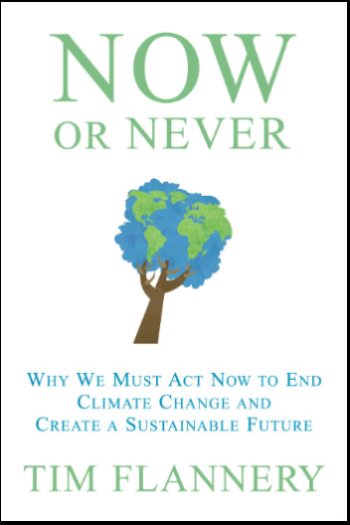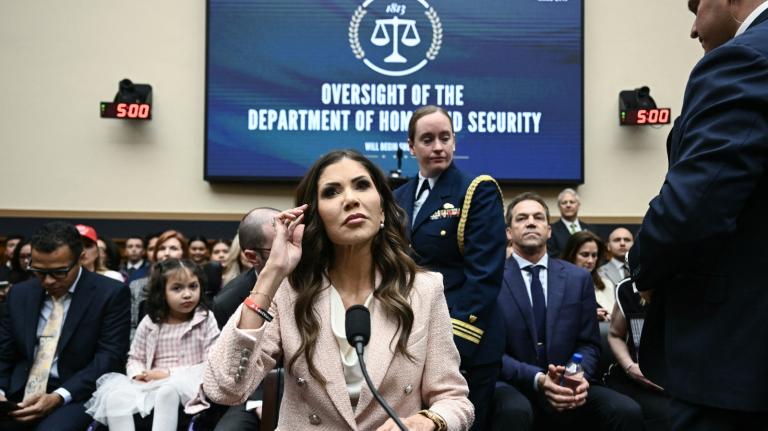There are good reasons not to get too worked up about public-opinion polling on issues like climate change and energy. Polls confirm, over and over, that the public opinion is malleable—so much rides on the wording of questions. And most people don’t analyze policy in their spare time, so why ask them about cap and trade? Only 24 percent of Americans could even identify cap and trade as an energy/environment policy in a May Rasmussen poll. Twenty-nine percent thought it was a Wall Street regulation.
Still, it’s hard not to be troubled by a Pew Research Center poll released today. Conducted three weeks ago among 1,500 adults reached on cell phones and landlines, the poll finds a significant drop in the number of Americans who believe global warming is happening, is human-caused, and is a serious problem.
The poll found that only 57 percent of respondents believe that “the earth is getting warmer,” compared with 71 percent in April 2008. Pew has asked similar sets of questions six times since June 2006 and has never found such a dramatic rise in skepticism.
Those who believe warming is caused by human activity (burning fossil fuels) wavered between 41 and 50 percent in the first five polls. This fall, the figure dropped to 36 percent.
Those who consider global warming a “very serious problem” ranged between 41 and 47 percent in the first five polls. This fall, the figure fell to 35 percent.
The shift was most pronounced among political independents. In that group, those who believe there is solid evidence for climate change fell from 75 percent in the April 2008 poll to 53 percent (that’s 22 points). Democrats who believe there is solid evidence for climate change dropped from 83 percent in the last poll to 75 percent. Republicans slipped from 49 percent to 35 percent.
Other recent polls haven’t found the rise in skepticism that Pew documents. An August Zogby poll found a majority of Americans wanted additional or continued action from Congress on climate change. A July poll from WorldPublicOpinion.org found Americans lagging other countries in demanding a climate plan, yet still asking their government to do more. For a bit of context on what scientists think, yesterday 18 leading scientific organizations sent a letter to U.S. senators reminding them of the scientific consensus that climate change is happening, that it is caused by human activities, and that its effects will be severe.
There were two small (and puzzling) bits of consolation in the poll: many respondents support limiting greenhouse-gas emissions, and many want the U.S. to join an international climate-change plan.
Fifty percent of respondents favor CO2 limits and “making companies pay for their emissions, even if it may mean higher energy prices.” Thirty-nine percent say they oppose this, and 11 percent are unsure or did not answer.
Fifty-six percent of respondents think the United States “should join other countries in setting standards to address global climate change.” Some of them appear to support solutions—even ones that raise the cost of energy—to problems they do not believe in.
There are a number of possible explanations for the rise in skepticism. Although, honestly, the findings are still surprising.
- For one, it’s been a cold summer in much of the country.
- Let’s not forget about that years-long, systematic disinformation campaign to confuse the public about climate change.
- Also, the economy. This week a POLITICO poll asked respondents to rank issues of concern. Predictably, the economy came out tops. Pew’s poll didn’t ask respondents to rank their concerns, but there is an (accurate) perception that politicians can only address so many problems. Telling pollsters you’re not so concerned with the climate is a way of telling elected leaders that’s great, now fix the economy.
- A national climate plan has become more likely than ever before. As the policy implications of this become more immediate and concrete, people may decide it’s more convenient not to believe in the phenomenon. Don’t believe in the problem and you don’t have to feel guilty for not responding to it.
- Finally, the campaign against cap and trade might have the inadvertent effect of making people reject the problem along with the solution. “It’s quite possible that anti-cap-and-trade messaging has seeped into America’s unconscious mind, affecting opinion on global warming even as the public says it’s heard very little about the legislation being proposed,” Chris Good writes at the Atlantic.
None of these are especially satisfying answers. It’s not a very satisfying poll. If nothing else, it underscores the importance of using clean-energy arguments to promote an energy and climate plan.




